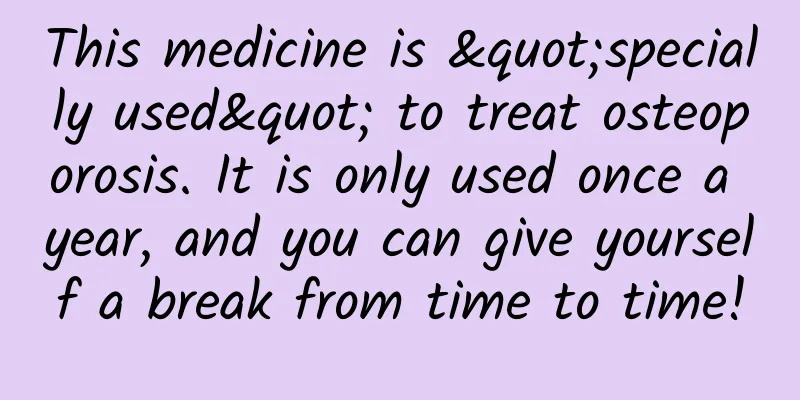It's been two months and the lochia is still not clear

|
After giving birth, women will secrete lochia from their vagina. This is blood discharged from the uterus. If it is not cleaned out, the lochia will remain in the uterus and cause great damage to it. Generally speaking, a woman's lochia can be discharged three to six weeks after giving birth, but some women still have trouble discharging their lochia for two months. So, what should you do if the lochia hasn’t cleared up after two months? Lochia refers to the blood and fluid discharged from the uterus after childbirth. All women will have symptoms of lochia after childbirth. Generally speaking, lochia can be gradually discharged within 3 weeks after delivery. Some women with weak bodies may need about six weeks to discharge it completely. If the lochia lasts for a long time, it means that the lochia is not completely discharged, and it should be treated in time with effective methods. Today, I will introduce to you some methods to treat residual lochia. 1. Women whose lochia has not cleared up for two months should first go to the hospital to find out the cause to see if it is caused by other gynecological diseases. For example, when chronic uterine inflammation occurs, it often causes symptoms of unclean lochia. If women with unclean lochia after childbirth are diagnosed with gynecological inflammation, they should receive antibacterial and anti-inflammatory treatment in time. 2. Traditional Chinese medicine believes that female lochia is caused by physical weakness, uterine blood stasis, poor uterine contraction and other factors. Therefore, the principles of invigorating qi and promoting blood circulation should be adopted during treatment. Therefore, women whose lochia has not cleared up two months after delivery can take Chinese medicine or apply Chinese medicine externally under the guidance of TCM diagnosis and treatment. Relatively speaking, this method is very effective in treating lochia. 3. Diet therapy is also a commonly used method of traditional Chinese medicine to treat lochia. The diet therapies that patients can choose include: 1. Millet, egg and brown sugar porridge. This porridge is rich in nutrients and has the effects of improving physical fitness, replenishing qi and activating blood circulation, protecting the spleen and nourishing the stomach. Therefore, it can effectively promote the excretion of lochia and help mothers speed up their body recovery. 2. Ginseng black-bone chicken soup. This therapeutic soup has the effect of replenishing qi and nourishing blood. It is very helpful for physical recovery and can speed up the excretion of lochia. 3. Hawthorn and brown sugar drink. This dietary therapy has the effect of nourishing blood and removing blood stasis. It can help discharge lochia as soon as possible. It is also a dietary therapy method that postpartum mothers should not miss. The above is the method introduced to you today for treating lochia that has not cleared up for two months. I believe that after reading it, you will have a better understanding of this knowledge. Finally, I would like to remind expectant mothers to get plenty of rest after delivery, especially to take measures to keep warm and keep mentally relaxed and stable, so as to help the body speed up the discharge of lochia. |
<<: Can I keep the baby after two months of pregnancy?
>>: Can I detect pregnancy in one month?
Recommend
What should pregnant women do if they have flat warts?
Flat warts are a relatively common skin disease. ...
The best time for moxibustion during the first month of pregnancy
In China, from ancient times to the present, ther...
What is vaginal discharge?
Normally, women have vaginal discharge when they ...
What should I do if I have bloody stools during breastfeeding?
It is easy to get constipation during breastfeedi...
How often should papaya milk be taken for breast enhancement
Can papaya milk really enlarge breasts and make t...
Tips for premature end of menstruation
We all know that a girl's normal menstrual pe...
I want to break up with my girlfriend, should I keep silent? What should I do if I want to break up with my girlfriend?
We all know that relationships require both parti...
One line for eight days of delayed menstruation
Important reminder: Menstruation is a unique sexu...
Early symptoms of kidney stones in women
With the increase of people's life pressure, ...
What causes dry heaving in late pregnancy?
Dry retching will still occur in the late pregnan...
How many months of pregnancy will it take to have a belly
After a woman becomes pregnant, many changes occu...
How to treat endometrial thickening?
Endometrial thickening is a common gynecological ...
Lipexin-type hypoglycemic drugs can lower blood sugar and blood pressure, protecting both the heart and the kidneys.
A friend left a message to Huazi, saying that he ...
Can I have sex before hysteroscopy?
When women feel that they have gynecological dise...









